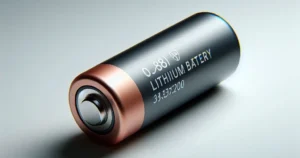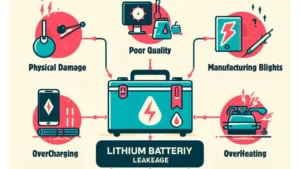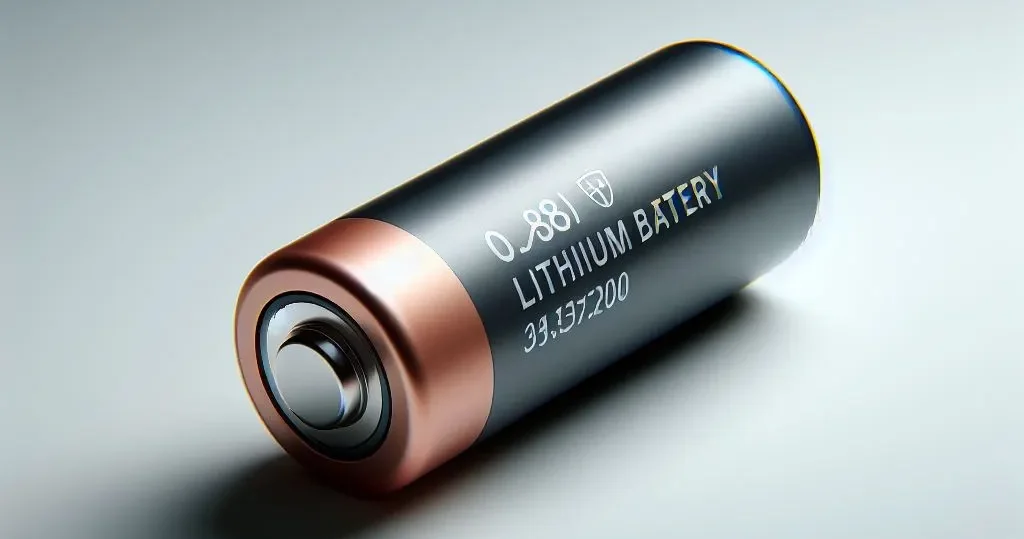
Lithium batteries have come ubiquitous in ultramodern electronics, powering everything from smartphones and laptops to electric instruments and medical devices. With their high dynamism viscosity and long lifetime, lithium batteries are preferred for their effectiveness and trustability. Still, there is a common or garden company among consumers, do lithium batteries leak?
Understanding Battery Leakage
Battery leakage refers to the escape of sharp electrolytes from within the battery covering, frequently performing in damage to the device and implicit security menaces. Traditional alkaline batteries, similar as those containing zinc and manganese dioxide, are known to blunder when overused or exposed to adverse conditions like heat or moisture. This leakage can erode the battery cube and render the device inoperable.
Lithium batteries, on the other phase, operate on a nonidentical chemistry and are less apt to leakage assimilated to alkaline batteries. The electrolyte exercised in lithium batteries is generally non-corrosive and contained within a sealed covering, reducing the liability of leakage. Still, this doesn’t mean that lithium batteries are entirely vulnerable to leakage under certain portions.
Do lithium batteries leak?
No, lithium batteries generally don’t leak under usual operation conditions. Unlike traditional alkaline batteries, lithium batteries are constructed with a sealed covering and exercise non-aqueous electrolytes, which are less apt to leakage. Still, in delicate cases of physical damage, overcharging, or exposure to extreme temperatures, lithium batteries may leak. It’s essential to manage lithium batteries with care and store them duly to minimize any implicit risks. However, similar to swelling or corrosion, it’s judicious to manage the battery precisely and dispose of it tallying to original regulations for dangerous waste, If you note any gesticulations of damage. Regular examination of lithium batteries can support insure safe and dependable operation.
Causes of lithium battery leaks

- Physical Damage: Physical damage to the battery, similar as dents, perforations, or cracks in the covering, can compromise its integrity and lead to leakage. Mishandling or dropping the battery can beget internal factors to rupture or come damaged, allowing electrolyte to escape.
- Overheating: Inordinate heat can beget lithium batteries to blunder. High temperatures can accelerate chemical responses within the battery, leading to the breakdown of internal factors and the release of electrolyte. Avoid exposing lithium batteries to direct sun, hot surroundings, or heat sources.
- Overcharging: Fleecing lithium batteries can beget them to come overcharged, leading to inordinate pressure buildup inside the battery. This pressure can beget the battery containing to rupture, performing in leakage of electrolyte. Always use a bowl specifically designed for lithium batteries and avoid overcharging them.
- Manufacturing Blights: Fleecing In rare cases, lithium batteries may have manufacturing blights that can lead to leakage. These blights may include excrescences in the battery covering, shy sealing of internal factors, or contamination in the electrolyte. Quality control measures during manufacturing can help minimize the threat of blights.
- Age and Degradation: As lithium batteries age, their internal factors can degrade, adding the liability of leakage. Over time, the seals and connections within the battery may weaken, allowing electrolyte to escape. Proper storehouse and regular use can help protract the lifetime of lithium batteries and reduce the threat of leakage due to aging.
- Environmental Factors: Exposure to harsh environmental conditions, similar as extreme temperatures, moisture, or sharp substances, can contribute to lithium battery leakage. Humidity or sharp chemicals can degrade the battery covering or internal factors, leading to leakage over time. Store lithium batteries in a cool, dry place, down from humidity and sharp accoutrements.
- Poor Quality or Counterfeit: Batteries Low-quality or fake lithium batteries may be more prone to leakage due to inferior accoutrements or manufacturing processes. Always purchase lithium batteries from estimable suppliers and avoid using fake or uncertified products.
Table of Batteries with their leaking Risk:
| Battery Type | Leakage Risk |
| Lithium-ion | 30-50% |
| Alkaline | 5-10% |
| Nickel-metal Hydride (NiMH) | 5-20% |
| Lead Acid | 1-5% |
| Nickel-Cadmium (NiCd) | 20-40% |
| Lithium Polymer (LiPo) | 30-50% |
What to do if lithium battery leaks?

It’s pivotal to handle the situation precisely to minimize any implicit risks, If a lithium battery leaks. Then is what to do if you encounter an oohing lithium battery
- Safety First: Put on gloves and safety goggles to cover your hands and eyes from any sharp substances that may have blurted from the battery.
- Ventilation: Insure you’re in a well-voiced area to avoid gobbling any smothers that may be emitted from the oohing battery.
- Insulation: If possible, insulate the oohing battery from other objects and hells to help farther impurity or damage.
- Containment: Precisely place the oohing battery in a leak-proof vessel, similar to a plastic bag or a sealed plastic vessel, to help any leakage from spreading.
- Avoid Contact: Avoid direct contact with the oohing substance. However, wash the affected area incontinent with cleaner and water, If any of it gets on your skin.
- Dispose Safely: Dispose of the oohing battery and any polluted accoutrements according to original regulations for dangerous waste.
- Don’t dispose of lithium batteries in regular ménage trash.
- Clean Up: After safely disposing of the oohing battery, clean any affected shells with a mild soap and water result to remove any residue. Be conservative not to spread the blurted substance further.
- Ventilate Area: Open windows or doors to allow fresh air to circulate and dissipate any moping smothers from the blurted battery.
- Examiner for Symptoms: If you or anyone additional behavior any adverse health goods after exposure to the blurted battery, similar as vexation or difficulty breathing, seek medical attention incontinent.
- Preventative Measures: Take preventative measures to avoid unborn leaks, similar to storing lithium batteries in a cool, dry place down from direct sun and extreme temperatures, and avoiding overcharging or mishandling them.
Preventing Lithium Battery Leakage:

Preventing lithium battery leakage is essential for maintaining safety and dragging the lifetime of your batteries. Then are some crucial preventative measures
- Choose Quality: Batteries conclude for high-quality lithium batteries from estimable manufacturers. Quality batteries are less likely to have manufacturing blights that could lead to leakage.
- Handle with Care: Avoid dropping or mishandling lithium batteries, as physical damage can compromise their integrity and increase the threat of leakage.
- Avoid Overcharging: Use dishes specifically designed for lithium batteries and avoid overcharging them. Fleecing can lead to inordinate pressure buildup inside the battery, causing leakage.
- Examiner Charging: Keep an eye on the charging process and remove the batteries from the bowl once they’re completely charged. Leaving batteries on the charger for extended ages can increase the threat of overcharging and leakage.
- Store Properly: Store lithium batteries in a cool, dry place, down from direct sun and heat sources. Avoid storing batteries in sticky or sharp surroundings, as humidity and sharp substances can damage the battery covering and lead to leakage.
- Check Regularly: Periodically check lithium batteries for signs of damage, similar as dents, perforations, or cracks in the casing. However, replace the batteries too incontinent to help leakage, If you notice any damage.
- Use Rightly: Follow the manufacturer’s instructions for using lithium batteries in an electronic device. Indecorous use, similar as fitting batteries the wrong way or mixing old and new batteries, can increase the threat of leakage.
- Dispose Properly: Dispose of old or damaged lithium batteries duly according to original regulations. Don’t essay to recharge or disassemble damaged batteries, as this can release dangerous chemicals and increase the threat of leakage.
- Educate Others: Educate family members, especially children, about the significance of handling lithium batteries safely to help leakage and accidents.
Conclusion
While lithium batteries are usually less apt to leakage assimilated to traditional alkaline batteries, they aren’t entirely vulnerable to it. By gathering the procurators that contribute to lithium battery leakage and taking proper preventives, consumers can minimize the threat of damage to their bias and insure the safe and dependable operation of lithium-powered electronics. Regular conservation and responsible running are crucial to precluding battery leakage and maximizing the lifetime of lithium batteries.







